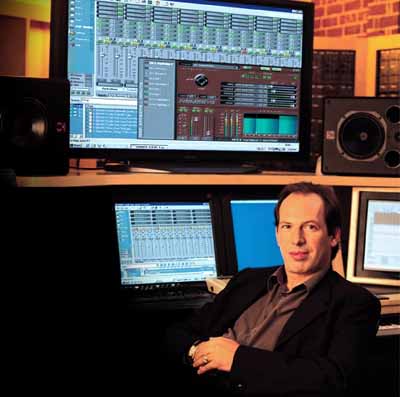People might think that a good musician is a one who has a good academical knowledge but I beleive that the most effective pieces of music have been created by people who had never looked at music as a knowledge but they have lived with it and music runs in their body like blood.and like that when you listen to their music you will defenately underestand the difference.Yanni is one of these people.His music captures mind and soul and you can hardly forget it when you once listen to it.
Yanni born in Greece in 1954 is a self-taught pianist who could not read musical notes. He was also a competitive swimmer in Greece and set a national record in the 50-meter freestyle competition at the age of 14.After attending the university he joined a local group named chameleon.After graduation he moved to Los Angeles and formed his own band in 1987.
Yanni's breakthrough success came with the release of his album and video,Yanni Live at the Acropolice,filmed on September 23, 1993 . This was Yanni’s first live album and utilized a full orchestra under the supervision of the Iranian conductor,Shahrdad Rohani, in addition to his core band. Subsequently, the concert was broadcast in the US and quickly became one of their most popular programs ever, having been seen in 65 countries by half a billion people. It has almost continuously remained on the charts since its release and is the second best-selling music video of all time, selling more than 7 million copies worldwide. A composition from this album, was determined to have the"Mozart Effect" by the Journal of the Royal Sociaty of Medicine.
In 2000, after a two-year sabbatical, Yanni released his first studio album in seven years: If I could tell you.One of the most effective sound tracks of all time.Yanni released the album,Truth of Touch, early in February 2011. Yanni is also working to expand his tour to Eastern Europe, Asia and South American countries including Chile, Argentina, and Brazil.




